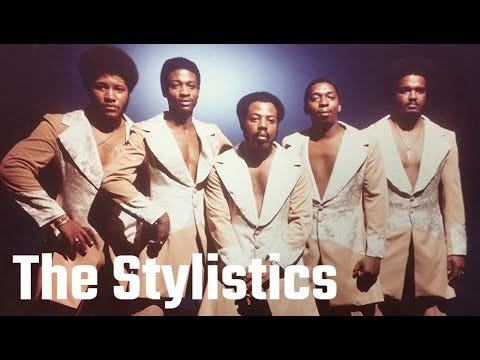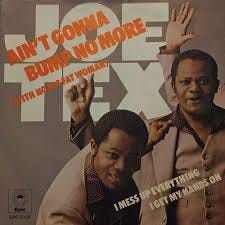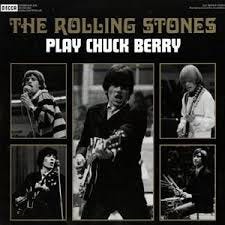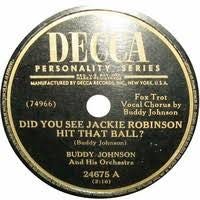Right from the get-go, the only thing I know about music, is how it makes me feel…
I grew up in a pub and my bedroom, was directly above the Jukebox, meaning I’d fall asleep each night, to the strains of random selections. The two tunes I recall the most vividly are ‘Strangers In The Night’ by Frank and ‘You Don’t Have To Say You Love Me’ by Dusty. Maybe the classics stay with you? Like you, as you’re reading this, I love music. I hope though, without being a Music Bore (MB). Music Bores come in all shapes, sizes, creeds and colours but they tend to share one characteristic, they’re almost exclusively- male. While some restrict themselves to a specific genre (Jazz tends to attract them), others are capable of boring you- across the entire musical spectrum. Should you ever find yourself in the company of someone you suspect of being an MB, simply ask ‘Oh, do you like Super Bass by Niki Minaj?’ With any luck, they’ll have a heart attack on the spot but if they don’t, you’ll get an hour-long lecture on the evils of Niki. I love “Super Bass” and I’m not adverse to ‘Bang Bang’ or ‘Anaconda. Or, come to that- Niki Minaj either but, then again, I love Pop music and I always have done.
So, come, join me, on Mick Mahoney’s… half-assed musical odyssey…
OK, so where were we, ah! That’s right, at the beginning…Like practically every other kid in Britain in the ’60s, I looked forward to Thursdays and, ‘Top of the Pops’. That’s all we got, those thirty-five minutes a week were our only glimpse of the artists playing the music we heard on Radio One or Caroline. I include the latter but I doubt I ever tuned in. Yup, TOTPs was it for us. At least it was until The Monkees came along. In the East Midlands, the show aired on Saturdays. Me, and two of my mates, Snowball and Brasso, formed a group. We’d perform in the playground. Guess what we were called? I was Davey Jones obviously but once the band split, that was it. My musical career was over and not once during the intervening sixty years, has it ever occurred to me, to resurrect it. The world ought to be grateful for that at least…
An aroma can take you back in time. Years ago, Junction Road (N19) had a host of bakeries. Some Greek, some English and, the smell of a bakery (From across the street) instantly takes me back there. Music does the same. On hearing an old tune, you’ll suddenly find yourself travelling through time and space. Back, to a long-forgotten interlude. I’ve far too many memories triggered by music, to start listing them. Every art form can lift one’s spirit but none can do it as instantly as a sweet refrain but, while I love music, I’m not overly interested in musicians. I’ve never been excited by the thought of ‘seeing’ an artist perform music I’ve already heard and, even less so, music I haven’t. The thought of seeing Stevie Wonder might get me off my sofa but even then, he’d have to be playing in Central London and, in a lounge. The best ‘gig’ I ever attended was Boz Scaggs at The Jazz Cafe. We sat upstairs and had table service.
Growing up in the early seventies I genuinely found it bewildering how kids at school took the ‘artists’ featured on TOTPs each week seriously, but they did. They’d read about them in magazines and argue (vehemently) as to who was the best. It’s difficult to list those they were arguing over as retrospectively, the years tend to merge into one. However, if you’re that interested, look at the UK charts between 71- 75… You’ll see what I mean. I’m sure it got worse later but by then, I’d stopped taking any interest.
The first thing- was the records. They’d be played at youth club dances and suchlike but aside from those, there was another aspect to my growing fondness for black American recording artists. Especially it has to be said, male vocal groups. In that, I had no idea who they were. Other than that, they sang in, for instance, The Stylistics...
The mid-seventies saw an endless parade of male vocal groups and I’m hard-pressed to recall a bad record amongst them. They just didn’t make them. This incidentally, is discounting The Temps and The Tops, as they’re acknowledged as culturally iconic. I’m talking about The Chi-Lites, Main Ingredient, Detroit Spinners, Detroit Emeralds, Isley Brothers, The Miracles, and The Jackson Five… and that’s off the top of my head.
I have a theory as to why the seventies were the pinnacle for these groups in particular and ‘Soul’ artists, in general. To quote Richard Pryor… “Would you like to hear it?'“ That was a rhetorical question because you’re going to anyway. My reasoning is thus, the bulk of these guys had grown up in the 50s/60s and therefore, still had that, oh so vital (for vocalists), church grounding and many, had spent their teens, on street corners – singing Doo Wop. By the time groups like The Detroit Spinners, Detroit Emeralds, Chi-Lites, Tramps, Delfonics, Tavares, O’Jays, Stylistics, Harold Melvin, Isley Brothers et al, were cutting records, they had a lifetime of singing experience. There’s another aspect though, while recording technology had advanced, it hadn’t done so, to the point of everything being “over” produced. That’d come in the 80s. The groups mentioned above, were certainly not a new phenomenon, The Coasters in 1954…
Preceding The Coasters by a decade, was Louis Jordan & His Tympany Five. Louis is criminally overlooked when the great minds at revered institutions like Rolling Stone set about explaining the world to us. Why? I’m not sure but it’s possible that being persistently earnest, they look down their noses at the humour that’s so prominent in Jordan’s music. Yet, Louis comes fifth in the list of (all-time) biggest selling, black American artists. Yet, he barely gets a mention in the lists of many music critics.
Judging from my iTunes Library, it’d appear I may prefer black artists but certainly not to the exclusion of white ones. Steely Dan is about as good as it gets for me. The ratio’s probably about sixty-forty. I can’t be sure as I’m shit at maths. I don’t believe black musicians to be inherently “better” or imbued with any sort of mystical musical prowess. That said, up until a point in American history, I feel that black vocalists were, generally speaking, superior to (most) white ones. There are a multitude of reasons for that. This story might help illustrate one of them. My aunt Etta was a Franciscan nun who taught in an all-black school, somewhere in the South, during the ’60s and ’70s. Every year the basketball team would make it “to State” and each year, they were cheated out of winning. She told me that on the drive back, the bus would be full of six-foot-plus boys sobbing their hearts out. I asked, “What happened in the end?” Etta replied, “We got so good they couldn’t cheat us.” The point being and it may well be a cliche but to make, whilst being black, in the USA… You had to be better.
So, once through the hoop of institutionalised racism (it was real then), blacks had another hurdle to overcome, the competition and that - was fierce. As Paul Williams of The Temptations famously quipped "That Levi Stubbs was no joke". The competitive aspect applied to whites, but if we trace things back to the 1950s when R&B records began being covered by white artists. They were (Elvis aside) invariably pale (sorry) imitations that sold infinitely more units. From this, we can deduce that the market share for whites was considerably higher, yet the talent bar was significantly lower. This is not across the board but applicable only to Caucasians, covering black records. It didn’t end in the fifties either. The Stones favoured Chuck. The Beatles, Little Richard. The Fab Four got it all out of their system, in Hamburg…
To quote from Carol Reed’s The Third Man and a speech written by Orson Welles, “In Italy for thirty years under the Borgias, they had warfare, terror, murder, and bloodshed, but they produced Michelangelo, Leonardo da Vinci, and the Renaissance. In Switzerland, they had brotherly love, they had five hundred years of democracy and peace, and what did that produce? The cuckoo clock.” This is not meant to excuse or belittle the deprivation blacks suffered but rather, to acknowledge that what came out of it, was some of the greatest creative talents, the world’s ever seen. I include athletes because black Americans brought an inventiveness to sports, that was previously unheralded.
They, along with their musical counterparts, brought something else… humour. It wasn’t enough just being excellent, you had to be entertaining with it. Aside, that is, from the likes of Miles Davis, John Coltrane and a few other cats. They just doubled up on the excellence and let the chips fall where they may. Why the need to be entertaining? Because black American audiences were notoriously demanding. Most, at that time, worked blue-collar jobs and when you work hard for your money, you tend to expect something for it. The audience at The Apollo Harlem for instance, was reputed to be particularly harsh but that crowd, rewarded talent when they saw it. A fact evidenced by a night in 1940. During an amateur competition, when a skinny eighteen-year-old from Newark New Jersey, stepped onto the stage and gave a rendition of “Body and Soul”. She won the competition and with it, a week’s residency at The Apollo. Her name was Sarah Vaughan and “The Divine One”, went on to become one of the greatest vocalists to have ever drawn (controlled) breath…
My introduction to “Soul” came in 1967, via The Four Tops’ rendition of “Reach Out I’ll Be There”. I’d have been eight and the record’s energy knocked my socks off. By the time I’d reached the ripe old age of twelve, I realised that I was far from alone in my (general) preference for black American music. Most kids I knew, certainly the working-class ones, felt the same. The Jackson 5 and The Osmonds summed it all up. The Jackson 5 became successful and the next thing you knew, Osmonds appeared. They were heavily promoted but there was no comparison. On the one hand, you had the most natural (child) entertainer in history, on the other, you had… Donny Osmond.
Then, there were the writers, the vast majority of whom had been in the service or worked blue-collar jobs. Often, both. The exceptionally talented Bill Withers, who’d served in the Navy, didn’t quit his day job, until long after signing his first deal. My point? They were men. Like those singing the blues before them and those, working in the much-maligned genre of Country Music (I love it), their songs focused on what mattered. Romantic and financial problems. These were the issues most gentlemen related to, and getting it right meant having lived it. A classic example comes from Lamont Dozier. Lamont being the Dozier, in Holland, Dozier, Holland. A writing team up there Bacharach & David, Rogers & Hammerstein. Lennon and McCartney. If you doubt my claim as to HDH’s greatness, look up their catalogue- please.
The Civil Rights Movement in the early sixties had a massive bearing on the brilliance of what was to come from Soul artists, a decade later. The sixties, however, saw the tragic and premature demise of two artists who, though still young, were already giants of not only Soul but popular music. God only knows what more Sam Cooke and Otis Redding would have gone on to achieve. Sam Cooke’s seminal masterpiece ‘A Change is Gonna Come’ has been covered no less than five hundred times and, by some seriously heavy hitters. Including Aretha, Bobby Womack and, of course, Otis himself.
Without ‘Change’ who knows if, what for me, is the greatest album ever produced, would have been so. As Marvin seemed to have enough trouble getting it out and that, was on a black label. Albeit a very conservative one. Sam Cooke, despite his tragic and early demise, is one of the greatest musical talents America has ever generated. He was also, apparently, the first sport an Afro. No hair straigtening for Mr Cooke…
One group that emerged through the Civil Rights Movement was The Staple Singers, who crossed over from Gospel to Soul. The Staples created some of the genre’s finest songs and, within their ranks, had my favourite female Soul singer. The great Mavis.
Freed from the straight-jacket of merely entertaining, African American artists in the seventies, began expressing themselves - with a vengeance. What started the ball rolling, in 1971, was Marvin’s ‘What’s Going On’. If you doubt the existence of a Higher Power, get some decent headphones and listen to the entire album, from start to finish, three times. If you still doubt, then there’s no hope, you’re a hellbound soul…
Marvin (the super-being) on stage in 1972, with the Funk Brothers:
Picket Lines and Picket Signs…
Just for good measure, here’s another from the same album. Marv wasn’t messing…








